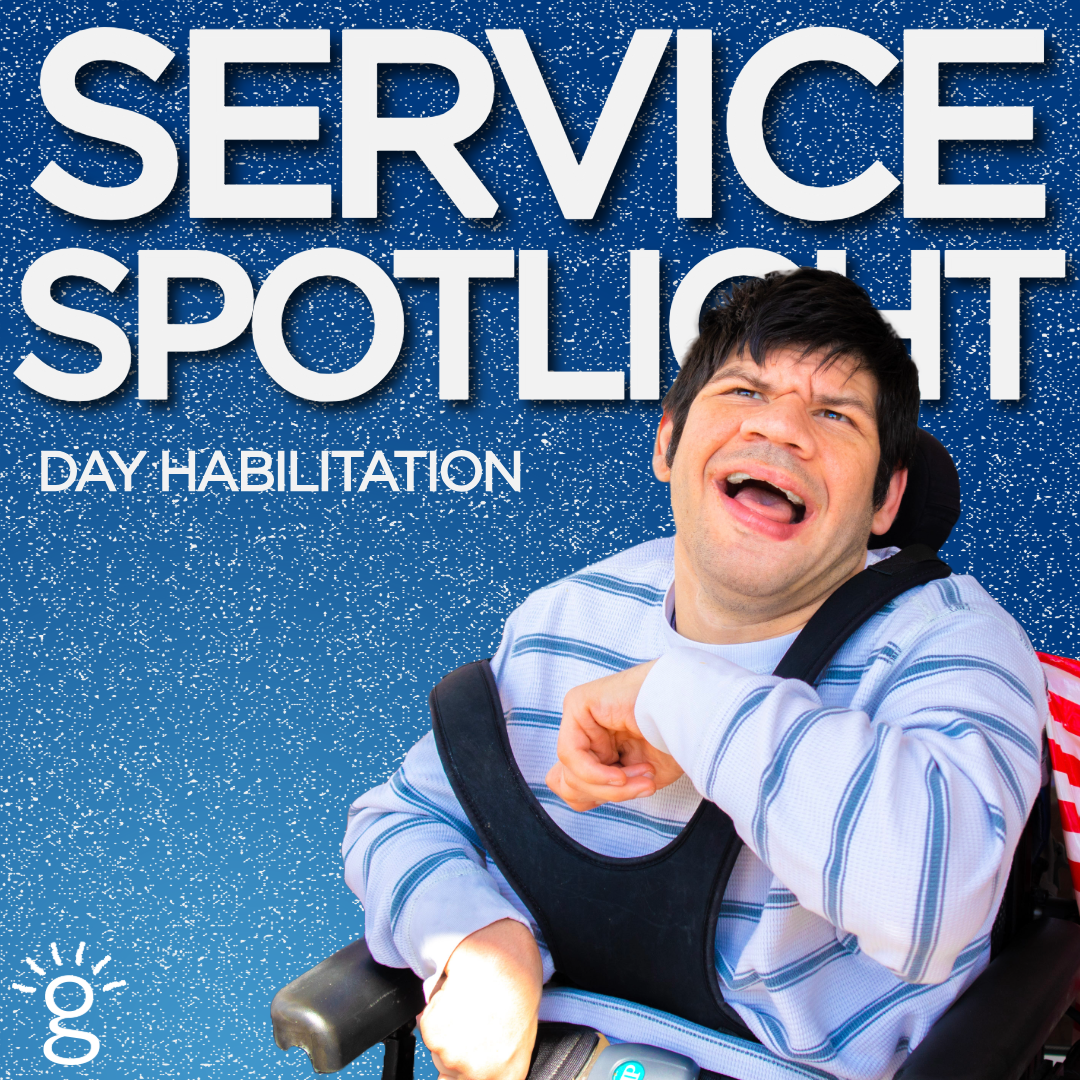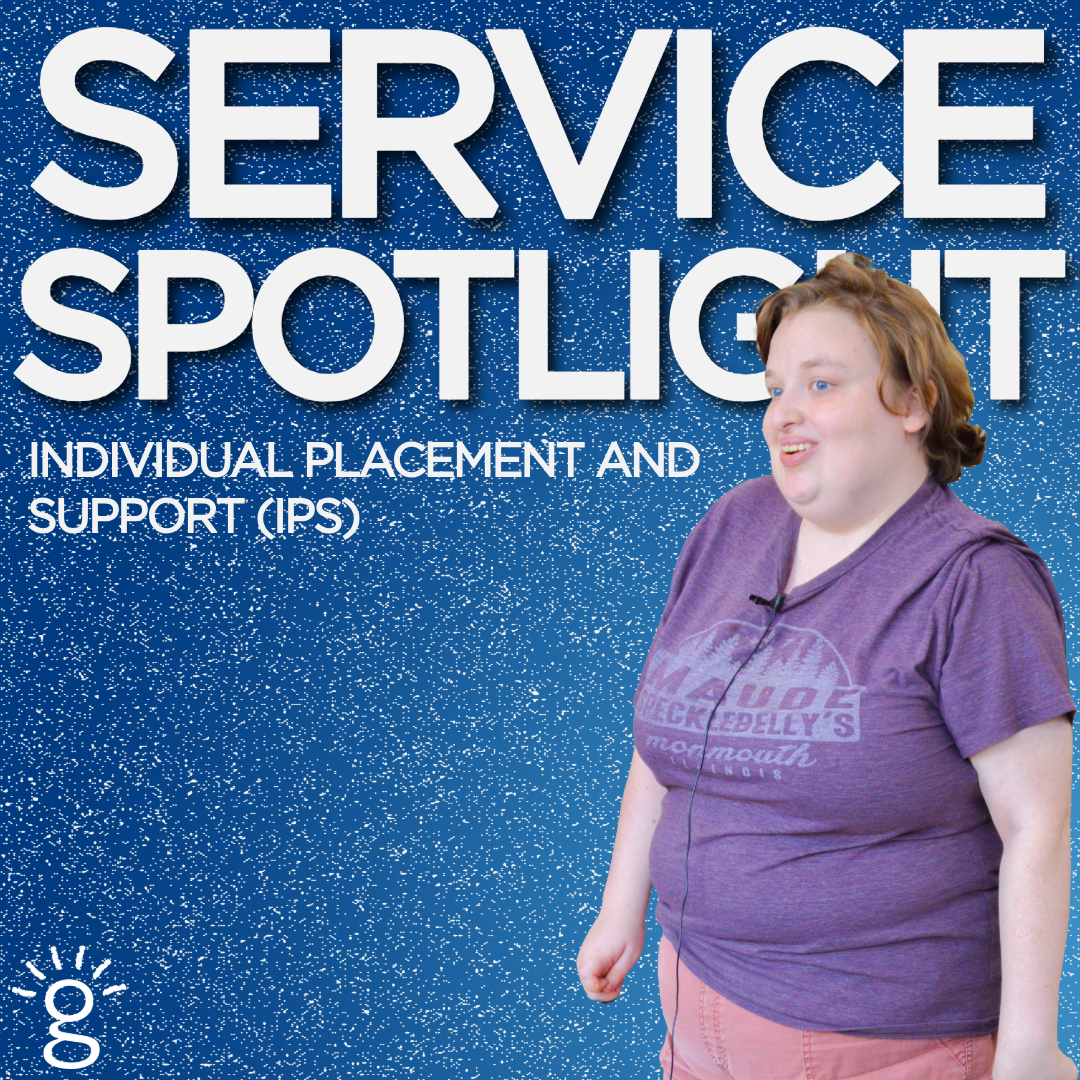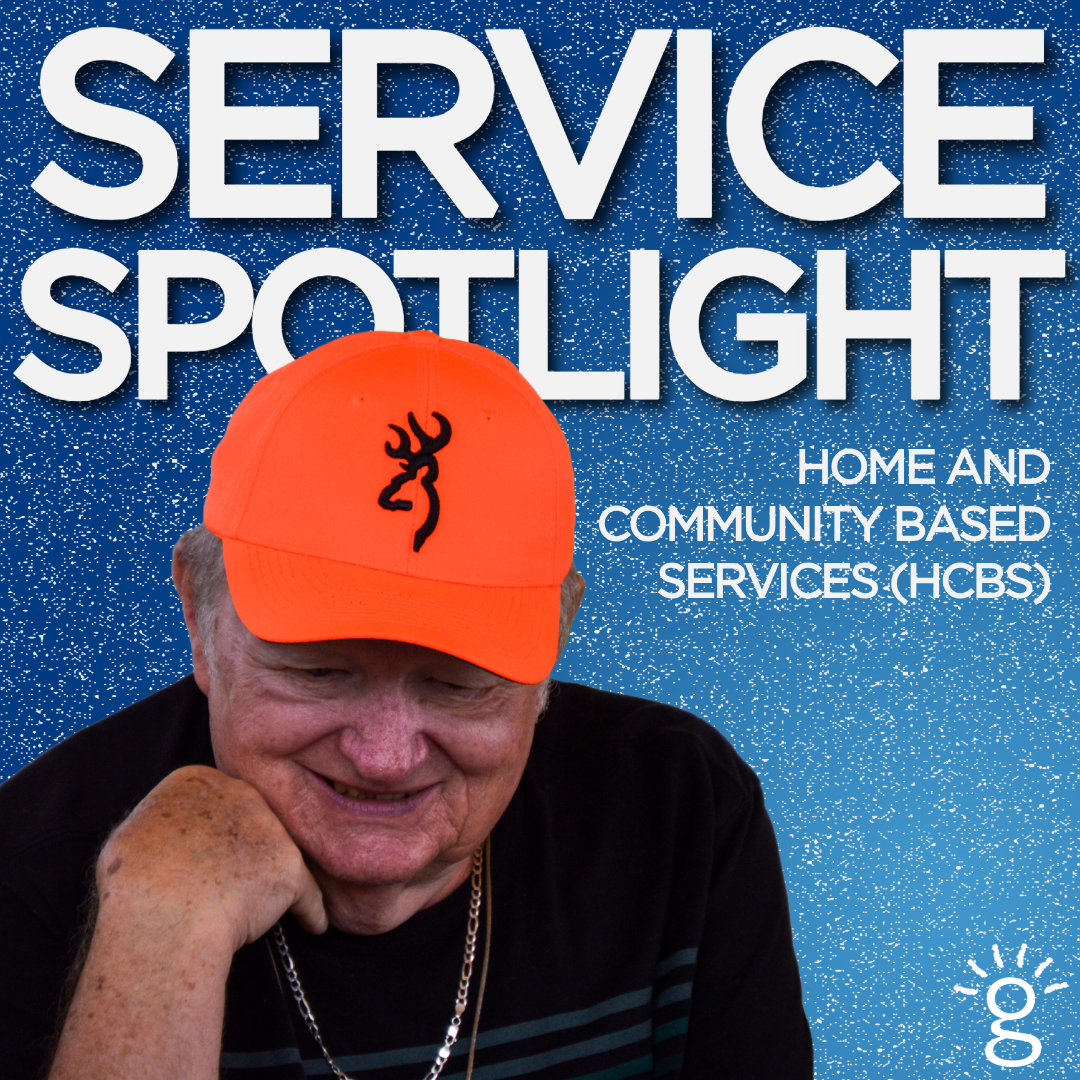
Happy Direct Support Professional Week!
Celebrating Our Amazing DSPs.

Gearing Up For DSP Week!

Gearing Up For DSP Week!
We’re gearing up for DSP Week next week, so in preparation, we’re covering all things DSP! This week, Imagine is focusing on education and awareness, sharing the ins and outs of the profession and its importance. ![]()
![]()

Gearing Up For DSP Week!

Gearing Up For DSP Week!

Gearing Up For DSP Week!


Unlocking Potential. Unleashing Joy.
Day Habilitation
Day Habilitation is intended to grow and develop life skills for people with disabilities. The primary focus of this service is to create opportunities for individuals with disabilities to learn and develop skills necessary to become and stay impactful members of their communities. This service gives individuals the opportunity to explore skills that interest them and encourages growth from their current ability level. Day Habilitation is an organized program of activities designed to foster the acquisition of skills, while building positive social behavior and interpersonal competence, greater independence, and personal choice. Here, individuals can be active and access their community through communication and socialization activities.
Furthermore, Day Habilitation services enhance the individual’s intellectual function, physical and emotional health and development, language and communication development, cognitive functioning, socialization, community integration, functional skill development, behavior management, responsibility, self-direction, daily living activities, self-advocacy skills, or mobility.
Day Habilitation Services are developed through an Interdisciplinary Team (IDT) for each person served. The IDT is comprised of the individual receiving services, service providers, Case Manager, family members, and anyone the individual deems important towards their success. Through discussion, the team designs goals and objectives based upon the desires, abilities, and specific needs of the individual receiving services. Service schedules are based on the needs of the individual, and they are monitored by the Community Integration Coordinator/Programmer who communicates with the individual’s Case Manager and guardian.

Real Jobs. Real Support. Real Results.
Individual Placement and Support
Individual Placement and Support (IPS) is the most extensively studied model of employment services for people with mental illnesses. IPS is individualized and focuses on a person’s strengths, using a multidisciplinary approach involving the individual’s mental health team. Its core belief is that work promotes wellness and recovery. Evidence shows people in IPS attain employment faster, hold jobs longer, and work more hours. IPS is more effective than alternative vocational approaches regardless of a variety of client background factors (e.g., ethnicity, gender, socioeconomic status). (Iowa IPS Research).
IPS is broken into 8 core practice principles, each playing an important role in the overall success of the individual.
Zero Exclusion: Eligibility is based on choice and interest in working. People are not excluded because of diagnosis, recent hospitalizations, criminal justice history, or perceived issues with work readiness.
Worker Preferences: IPS Specialists and job seekers establish preference of job type, wage, distance, hours worked/work schedule, work environment, and job supports. The job search is based on these individualized preferences, strengths, and experiences, and not on a pool of readily available jobs.
Rapid Job Search: As soon as a job seeker is referred, services start. Waitlists are discouraged. IPS Specialists and job seekers begin looking for work within a month of service provision.
Benefits Planning: Certified Work Incentives Counselors (CWICs) are available for clients interested in knowing how their benefits are affected by working. Incentives for workers with disabilities are also shared.
Integrated Services: IPS Specialists, mental health practitioners and vocational rehabilitation counselors work together to help job seekers achieve recovery goals through successfully supporting employment.
Systematic Job Development: IPS Specialists build relationships with employers based on the job seekers’ preferences to learn the business needs, environment, and job requirements to make successful job matches.
Competitive Employment: A full or part time job in the community earning minimum wage or higher, open to everyone, where coworkers don’t necessarily have disabilities.
Time-Unlimited Supports: Supports are provided by IPS staff for as long as the worker wants or needs, typically up to a year after becoming employed. Natural and clinical supports are built up in this time for support upon successful completion of IPS.
IPS empowers people living with mental illnesses, substance use disorders, and other disabilities to work at jobs they choose and enjoy. Benefits of IPS Employment include increased income, improved self-esteem, increased social and quality of life, better control of symptoms, reduced substance use, and reduced hospitalization.
In 28 studies, IPS was successful for 55% of people, versus 25% for other employment programs. This means people with mental illness or co-occurring disorders find jobs they prefer in the community in which they prefer and/or live more frequently than in any other employment program.
Imagine the Possibilities offers IPS Services in Washington, Louisa, Jefferson, Henry, Des Moines, and Lee County.

Your Home. Your Community. Your Care.
Home and Community Based Services
Home and Community Based Services, often referred to as HCBS, is a community for individuals with disabilities to live, grow relationships, and maximize independence. Our focus is to encourage and equip individuals to reach individual achievement. Staying closely connected with an individual’s Care Team can help define what maximized independence looks like for their abilities, needs, and goals. The skills developed in an HCBS setting help individuals learn how to take care of their home, cook healthy meals, budget their resources, prioritize personal health and safety, and be actively involved in their own community.
Home and Community Based Services are developed through an Interdisciplinary Team (IDT), which consists of the individual receiving services, the service providers, family members, and anyone the individual deems important towards their success. The team then designs goals and objectives based on the needs and desires of the individual receiving services. These services are monitored though administrative level staff. These team members supervise the direct support staff and participate in the delivery of services through coordination of IDT meetings, counseling, medical appointments, etc. Service schedules are based on the needs and goals of the individual.
